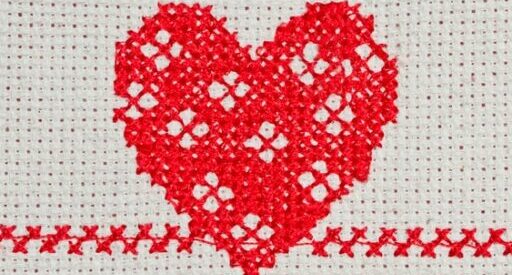Haiti Unveils Program to Boost Sewing and Shoemaking Industries
On Friday, August 29, at the Montana Hotel, the Ministry of Commerce and Industry (MCI) of Haiti officially launched the national program for the Revitalization of Haiti’s Sewing and Shoemaking Sectors (RSCCH). This new initiative, themed Let’s sew our pride, let’s consume locally, wants to promote Haitian craftsmanship, boost technical skills, modernize workshops, and spark local entrepreneurship.
The program’s big dream? Transform the sewing and shoemaking sectors into real engines for Haiti’s economy by creating jobs, opening doors for the youth, and cutting down on reliance on imports.
Table of Contents
Modernizing the Sewing and Shoemaking Sectors
The RSCCH program is trying to usher in a fresh era for Haiti’s sewing and shoemaking industries. By updating tools and techniques, they hope to ramp up efficiency and productivity.
Modernization efforts will focus on:
- Upgrading equipment: Bringing in advanced machinery and technology to boost both quality and speed.
- Training artisans: Rolling out training programs so artisans can master modern techniques and best practices.
- Enhancing workshops: Renovating old workshops to improve working conditions and streamline production.
Panel Paulémont, Director General of the MCI, stressed how these changes could make the sectors more competitive and help local products stand out, whether at home or abroad.
Facilitating Access to Financing
Another key part of the RSCCH program is making it easier for artisans and entrepreneurs to get financing. The program wants to:
- Offer low-interest loans for buying new equipment and materials.
- Provide grants for innovative projects that can really shake up the industry.
- Set up microfinance options tailored to small-scale artisans and businesses.
With better access to financial resources, artisans could expand operations, tackle bigger projects, and play a larger role in Haiti’s economy. It’s a big hope, but one worth shooting for.
Promoting Competitiveness and Structuring Activities
If these sectors are going to thrive long-term, the RSCCH program says they need more competitiveness and better structure. That means:
- Encouraging collaboration: Building partnerships among artisans, designers, and others to create a stronger, more supportive network.
- Standardizing processes: Laying down industry standards and best practices for consistent, high-quality production.
- Marketing and branding: Creating strong brand identities for Haitian-made goods to make them more appealing and marketable.
Dikel Delvariste, Director General of the National Institute of Vocational Training (INFP), pointed out that these steps could boost national production and help Haiti rely less on imports. Strengthening vocational schools is a big part of the plan, aiming for a more resilient and self-sufficient industry.
Strengthening Support for Haitian Designers
The RSCCH program recognizes how vital designers are in these sectors. So, it’s committed to backing Haitian designers through:
- Running mentorship programs to help designers sharpen their skills and find their way in the industry.
- Creating networking opportunities so designers can meet clients, collaborators, and investors.
- Offering platforms for showcasing their work, like fashion shows and exhibitions.
Supporting designers should encourage more innovation and creativity, making Haitian-made goods not just high-quality but also unique and packed with cultural meaning. I think that’s something worth celebrating.
Reviving Small-Scale Crafts and Promoting Tradition
Besides modernizing, the RSCCH program puts a lot of weight on reviving small-scale crafts and celebrating Haitian traditions. Ms. Dithny Joan Raton, Special Mediator for Labor and Clothing Manufacturing, said this initiative helps preserve cultural heritage and creates jobs for artisans.
The program hopes to:
- Encourage the creation of traditional crafts that showcase Haiti’s rich cultural history.
- Support local artisans in keeping their skills alive and passing them on to the next generation.
- Promote the consumption of locally-made products to strengthen the domestic market.
By focusing on tradition and national identity, the program wants to spark pride and ownership among Haitians, nudging them to support and invest in local industries.
Creating Jobs and Building the Future
One of the RSCCH program’s biggest goals is job creation and building a sustainable future for Haiti. James Monazard, Minister of Commerce and Industry, talked about how clothing, embroidery, and footwear have always been important to Haiti’s economy.
He reaffirmed the government’s commitment to supporting artisans in their work. The program’s looking to:
- Create employment opportunities for artisans, designers, and other industry professionals.
- Provide training and education so the workforce is ready for modern production techniques.
- Develop infrastructure that supports the growth and sustainability of the sewing and shoemaking sectors.
A Comprehensive Strategy for Economic Transformation
The RSCCH program fits into a broader strategy to boost Haiti’s economy and strengthen its industrial backbone. Axène Joseph, Director of the Prime Minister’s Office, called the program an act of resistance and national pride. He said, the time has come to give national production a strategic place in Haiti’s development.
The program’s aiming to:
- Mobilize the entire value chain: Involving artisans, designers, mechanics, accessory and software makers, and other players.
- Enhance economic resilience: Reducing dependence on imports and building self-sufficiency.
- Promote sustainable development: Making sure industry growth is both environmentally and socially responsible.
Conclusion
The launch of the RSCCH program marks a big step for Haiti’s sewing and shoemaking sectors. By modernizing production and making financing easier, the program wants to breathe new life into these industries.
It also focuses on tradition and job creation. Artisans and their communities could see real, lasting benefits from this initiative.
If you’re curious and want more details, check out the official announcement [here](https://www.haitilibre.com/en/news-45665-haiti-economy-launch-of-an-ambitious-program-to-strengthen-the-sewing-and-shoemaking-sectors.html).

